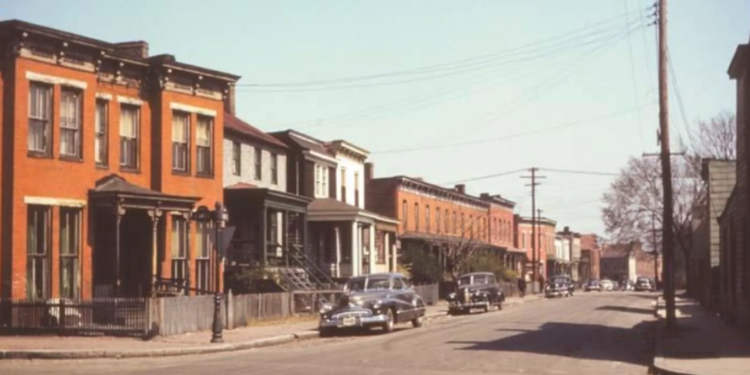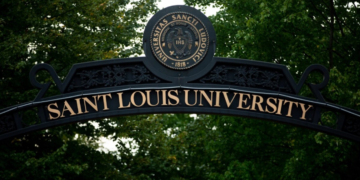Houses that once stood on Baker Street in Jackson Ward during the 1950s, but no longer remain. Photo: Courtesy of The Valentine.
July 30, 2024 Story by: Editor
Jackson Ward is one of many Black neighborhoods across the U.S. that were demolished to make way for highway construction.
Why it matters: Richmond’s recent efforts to address the damage caused by the destruction — which displaced nearly 7,000 residents, many of whom had lived there for generations — have reignited conversations about reparations for these displaced families, as reported by WHRO.
Current status: A key element of this discussion revolves around a $1.3 million grant awarded to Richmond last year by the Department of Transportation. The grant is part of a larger $1 billion initiative aimed at “reconnecting” communities that were split by highways.
The funds will be used to explore the feasibility of building a land bridge to reconnect the north and south sides of Jackson Ward, which were divided when around 1,000 homes and businesses were demolished in the 1950s to construct I-95.
- Depending on its size and location, the land bridge project could cost between $100 million and $400 million.
- The goal is to increase Black homeownership and business ownership while closing the economic divide between the northern and southern sections of what was once called “the Harlem of the South.”
As of 2022, the northern part of Jackson Ward, which includes the predominantly Black public housing area of Gilpin Court, has an unemployment rate twice as high as the southern portion, according to WHRO.
- Nearly 80% of the residents in the north live below the poverty line, with a median income of just $10,734.
However: “You can’t reconnect people who were forcibly removed,” said Gary Flowers, a fourth-generation resident of Jackson Ward. In an interview with WHRO, he referred to the proposal as a “glorified doggy park.”
Moreover, there are concerns among residents that these changes could lead to further displacement, especially in Gilpin, which is slated for redevelopment by the city.
- Critics argue that the land bridge does not address the persistent issue of Black-owned homes in Richmond being valued less than those owned by white residents.
- These disparities continue to push Black residents out of their neighborhoods in Richmond.
The broader conversation: Reparations and the question of “how, as a city, do we tackle that issue” are integral to discussions about the future of Jackson Ward, according to Marianne Pitts, deputy director of Richmond’s planning department, who spoke with WHRO.
Possible solutions, as reported by WHRO, include:
- Issuing payments to families displaced during the 1950s.
- Offering low-rate mortgage loans to encourage people to return to Jackson Ward.
Providing financial incentives to current long-term residents to prevent their displacement during the project. Source: Axios Richmond

















